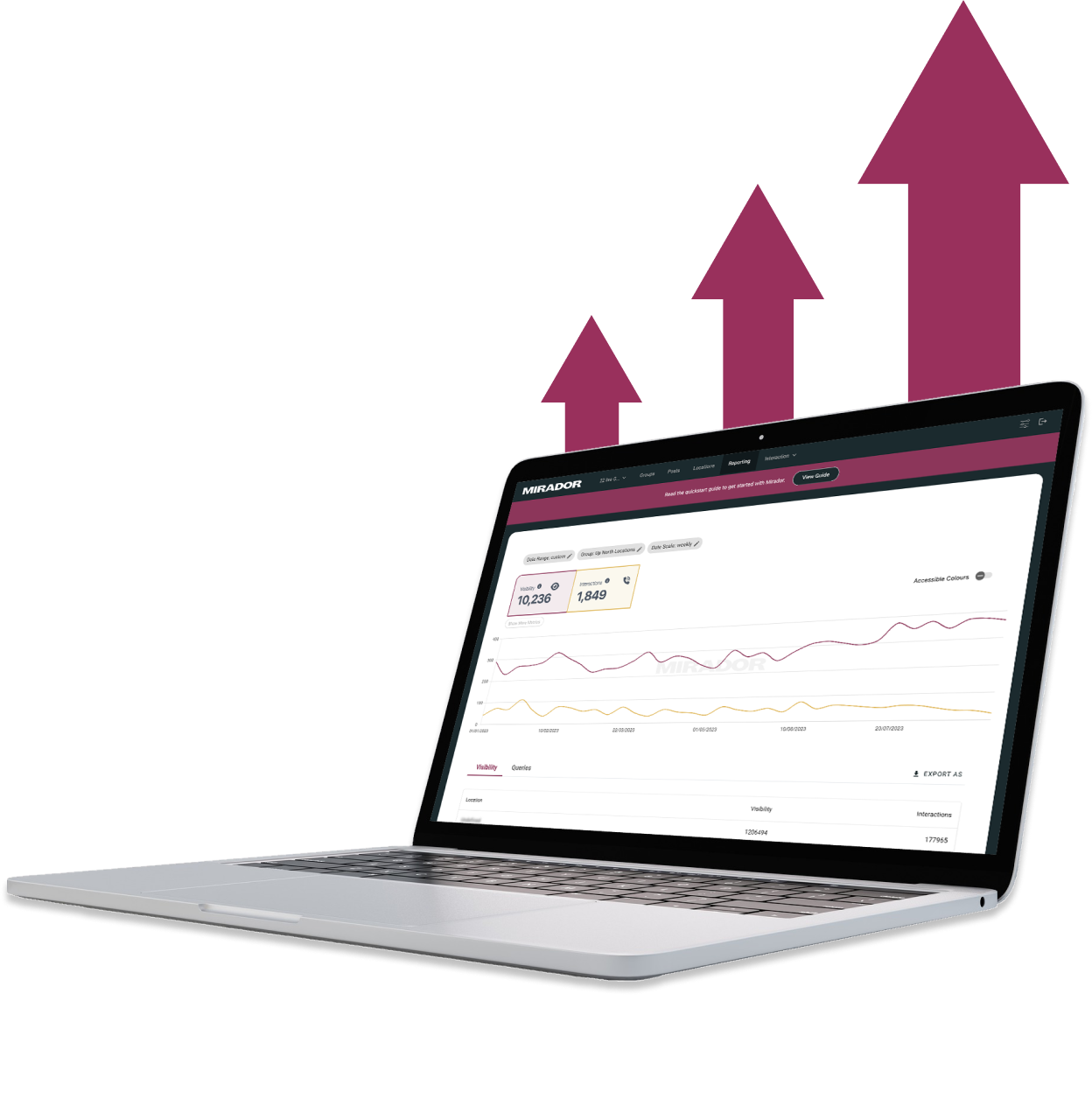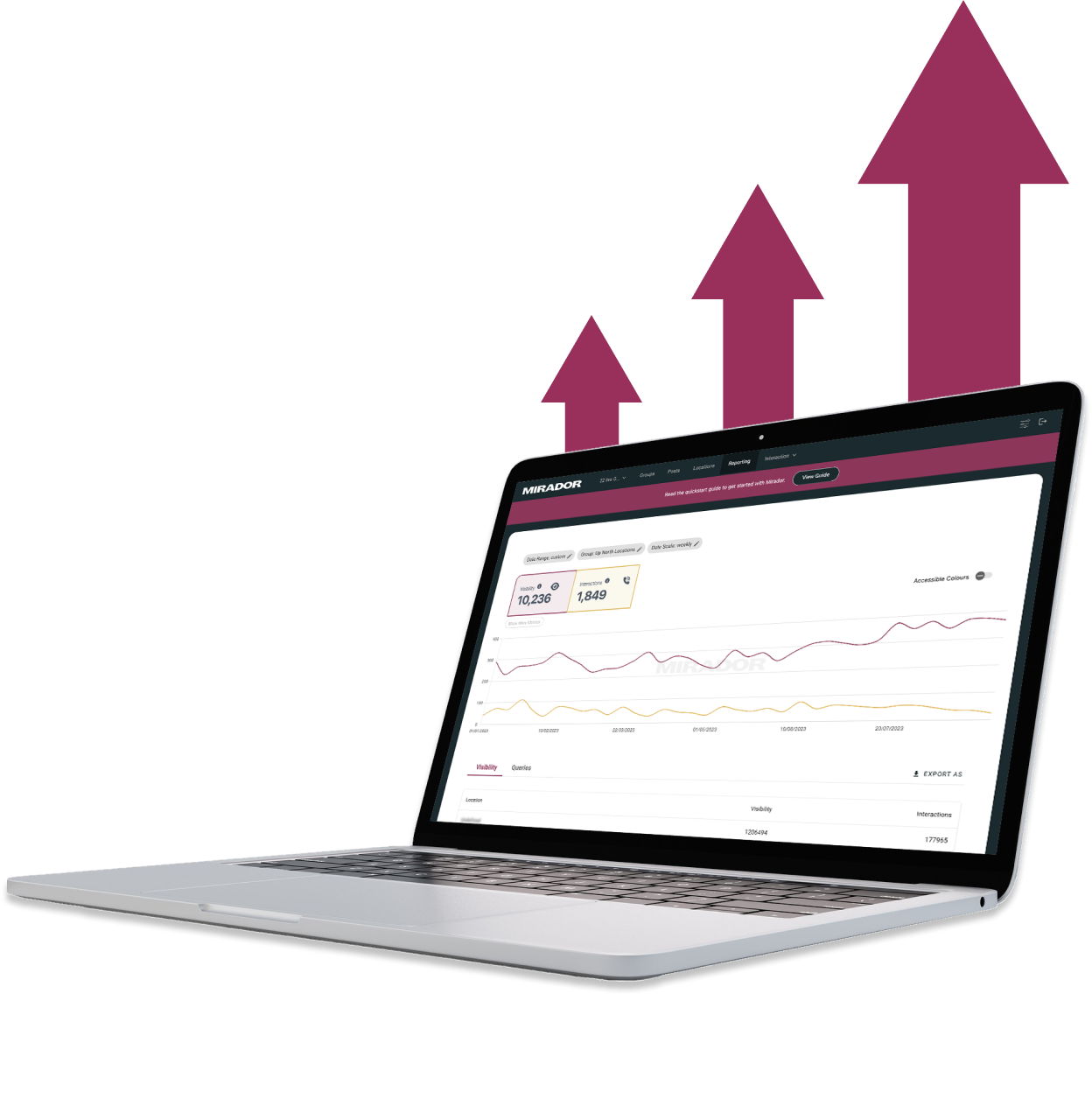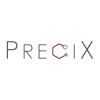Webflow vs. Shopify: A Comparison
Webflow vs. Shopify: Which Platform is Best for Your E-commerce Business?
Webflow vs Shopify: An Overview
Webflow and Shopify are both popular platforms for building and managing online stores. While they share some similarities, there are also significant differences between the two.
Webflow is a visual website builder that allows users to create custom websites without needing to know how to code. It offers a range of templates and design tools, making it popular among designers and creatives. Webflow also includes some basic ecommerce functionality, allowing users to sell products directly from their website.
Shopify, on the other hand, is a dedicated ecommerce platform that is designed specifically for online stores. It offers more advanced features and functionality than Webflow, including inventory management, order tracking, and payment processing. Shopify also has a large app store, allowing users to add additional features and functionality to their store as needed.
When it comes to pricing, Webflow offers a range of plans to suit different needs and budgets. Its basic plan is free, while its most advanced plan costs $36 per month. Shopify also offers several pricing plans, with prices ranging from $29 to $299 per month depending on the features and functionality needed.
Overall, Webflow is a good choice for those who want to create a custom website with some basic ecommerce functionality. Shopify, on the other hand, is a better choice for those who want a dedicated ecommerce platform with advanced features and functionality.
Understanding Webflow
Webflow is a website builder that allows designers to create responsive websites without needing to write code. It is a Content Management System (CMS) that provides a visual editor, which means designers can create websites with full creative freedom.
Webflow has a user-friendly dashboard that allows users to manage their websites and edit content easily. The platform offers a range of templates that can be used as a starting point for designing a website. These templates are fully editable, and designers can customize them to fit their needs.
One of the standout features of Webflow is its flexibility. Designers have complete creative control over their websites, and they can make changes to any element of the website. Webflow allows designers to create animations, add custom CSS, and use JavaScript to create interactive elements.
Webflow offers both free and premium templates, which provide different levels of creative freedom. The premium templates come with more features and design options, while the free templates are more limited.
Overall, Webflow is an excellent platform for designers who want full creative freedom over their websites. The visual editor and editable elements make it easy to create responsive websites without needing to write code.
Understanding Shopify
Shopify is an all-in-one eCommerce platform that allows users to create and manage their own online store. It was designed to make the process of building an eCommerce website as simple as possible, even for those with no coding experience. Shopify offers a wide range of features to help users create and customize their online stores, including integrations, themes, and apps.
One of the key features of Shopify is its app store, which offers a variety of free and paid apps to help users manage and grow their businesses. Shopify also offers a variety of email marketing tools, including abandoned cart recovery and welcome series, to help users keep in touch with their customers.
Shopify offers three main pricing plans: the Basic Shopify plan, the Shopify plan, and the Advanced Shopify plan. Each plan comes with a different set of features and pricing, so users can choose the plan that best fits their needs and budget. All plans come with access to Shopify's dashboard, which allows users to manage their store, view analytics, and more.
One of the benefits of using Shopify is that it offers a customizable shopping cart and checkout process, which allows users to create a shopping portal that matches their brand. Shopify also offers a range of shipping discounts and integrations with popular payment gateways like Google Pay. Additionally, Shopify offers staff accounts, which allow users to give employees access to their store without giving them full administrative privileges.
Overall, Shopify is a powerful eCommerce platform that offers a wide range of features to help users build and manage their online stores. With its customizable shopping cart, integrations, and email marketing tools, Shopify is a great option for anyone looking to start an online business.
Features Comparison
Webflow and Shopify are both powerful e-commerce platforms with a range of features to help businesses of all sizes succeed online. Here's a quick comparison of some of the key features of each platform:
Features
Webflow is a design-focused platform that offers complete design control and customization for users. It also has a range of built-in features, including:
- CMS capabilities
- Form builders
- Hosting and security features
- Customizable templates
- 24/7 support
Shopify is an all-in-one e-commerce platform that offers a range of features, including:
- Inventory management
- Order tracking and fulfillment
- Payment processing
- Shipping and tax management
- Customizable templates
- 24/7 support
SEO
Both Webflow and Shopify offer a range of SEO tools to help businesses rank higher in search engines. Webflow offers:
- Customizable meta tags and descriptions
- XML sitemap generation
- Open Graph and Twitter Card support
- 301 redirects
- AMP support
Shopify offers:
- Customizable meta tags and descriptions
- XML sitemap generation
- Open Graph and Twitter Card support
- 301 redirects
- AMP support
Analytics
Webflow offers built-in analytics tools that allow users to track website traffic and user behavior. Shopify integrates with Google Analytics to provide users with detailed insights into their website's performance.
Management
Webflow offers a user-friendly CMS that allows users to easily manage their website's content. Shopify offers a range of management tools, including:
- Inventory management
- Order tracking and fulfillment
- Payment processing
- Shipping and tax management
Images
Webflow offers a range of image optimization tools to help users optimize their website's images for faster loading times. Shopify offers similar image optimization tools, as well as the ability to add alt tags to images for improved SEO.
Global
Webflow offers multi-language support, allowing businesses to create websites in multiple languages. Shopify also offers multi-language support, as well as the ability to sell products in multiple currencies.
Customization
Webflow offers complete design control and customization, allowing users to create unique and personalized websites. Shopify also offers a range of customization options, including customizable templates and the ability to add custom code.
Color
Webflow offers a range of color customization options, allowing users to create custom color palettes for their websites. Shopify also offers a range of color customization options, including customizable templates and the ability to add custom code.
Payment Options
Webflow offers a range of payment options, including credit card payments, PayPal, and Apple Pay. Shopify offers a similar range of payment options, as well as the ability to add custom payment gateways.
Pros and Cons
Webflow Pros:
- Complete design control and customization
- User-friendly CMS
- Multi-language support
Webflow Cons:
- Higher learning curve
- Limited third-party integrations
Shopify Pros:
- All-in-one e-commerce platform
- Wide range of third-party integrations
- Inventory management and order tracking
Shopify Cons:
- Limited design control and customization
- Higher transaction fees for non-Shopify payment gateways
Performance
Webflow offers fast loading times and optimized images for improved website performance. Shopify also offers fast loading times, as well as a range of performance optimization tools.
E-commerce Features
Webflow offers a range of e-commerce features, including customizable product pages, product variants, and a built-in shopping cart. Shopify offers similar e-commerce features, as well as the ability to sell digital products and gift cards.
Marketing Features
Webflow offers a range of marketing features, including email marketing and social media integrations. Shopify offers similar marketing features, as well as the ability to create discounts and promotions.
SSL
Both Webflow and Shopify offer SSL encryption to ensure secure transactions on their platforms.
Gift Cards
Shopify offers the ability to sell gift cards, while Webflow does not currently offer this feature.
E-commerce Functionality
Webflow was initially built for generic website design, while Shopify has always been an e-commerce platform. As a result, Shopify offers more advanced e-commerce functionality and a wider range of third-party apps.
Inventory Management
Shopify offers advanced inventory management tools, including the ability to track inventory levels and receive low stock alerts.
E-commerce Tools
Shopify offers a range of e-commerce tools, including abandoned cart recovery and product recommendations.
Logos
Webflow allows users to easily add logos to their websites, while Shopify offers a range of customizable logo templates.
Ease of Use
Both Webflow and Shopify offer user-friendly interfaces, but they differ in their approach to ease of use.
Webflow provides users with a high degree of creative freedom, allowing them to design their website from scratch. However, this means that users must have some level of design and coding knowledge to fully utilize the platform. While Webflow does offer templates to help users get started, there is still a learning curve involved in using the platform effectively.
On the other hand, Shopify focuses on simplicity and ease of use for eCommerce functionality. The platform provides users with a wide range of templates to choose from, making it easy to get started with creating an online store. Shopify also offers a straightforward interface that allows users to manage their store and products with ease.
In terms of the learning curve, Shopify is generally considered to be more user-friendly for beginners. However, for those with design and coding experience, Webflow may offer more flexibility and customization options.
Overall, both platforms offer different approaches to ease of use, and the choice between them will depend on the user's specific needs and skillset.
Pricing Comparison
When it comes to pricing, both Webflow and Shopify offer various plans to choose from. Webflow offers a free plan, while Shopify does not. However, Shopify offers a 14-day free trial for all its plans.
Webflow's pricing plans include a Basic plan, an Advanced plan, and an Enterprise plan. The Basic plan starts at $29 per month when paid annually, while the Advanced plan costs $74 per month when paid annually. On the other hand, Shopify's pricing plans include a Basic plan, a Shopify plan, an Advanced Shopify plan, and a Shopify Plus plan. The Basic plan starts at $29 per month, while the Shopify plan costs $79 per month. The Advanced Shopify plan costs $299 per month, and the Shopify Plus plan's pricing is available on request.
Both platforms charge transaction fees, but Shopify's transaction fees are lower than Webflow's. Webflow charges a 2% transaction fee on all its plans, while Shopify charges between 0.5% and 2% depending on the plan.
In terms of pricing, both platforms are fairly competitive. However, Shopify offers a wider range of plans to choose from, including a free trial period for all plans. On the other hand, Webflow's plans are more affordable, especially for small businesses. Ultimately, the choice between the two platforms will depend on the specific needs of the business and its budget.
Design and Customization
Both Webflow and Shopify offer a range of design options and customization features, but they differ in terms of the level of creative control they provide.
Webflow is known for its full creative freedom, allowing designers to create visually stunning websites and online stores without any coding skills. Its drag-and-drop interface and editable elements make it easy to customize and experiment with different layouts, colors, and animations. It also offers a range of premium templates and themes that can be fully customized to match a brand's unique style.
On the other hand, Shopify is primarily an eCommerce platform and its design options are more limited in comparison to Webflow. However, it does offer a range of customizable themes and templates that can be edited using HTML and CSS. Shopify also provides full creative control over logos and branding elements, allowing businesses to create a unique and recognizable online presence.
In terms of design flexibility, Webflow is the clear winner. Its visual interface and drag-and-drop tools make it easy to create custom designs and animations, while its premium templates offer a range of creative options. Shopify, while more limited in design options, still offers a range of customizable themes and templates that can be edited to fit a brand's unique style.
Overall, the choice between Webflow and Shopify will depend on the level of creative control and design flexibility a business requires. If full creative freedom is a priority, Webflow is the better option. If a business is primarily focused on eCommerce and requires a platform with strong eCommerce features, Shopify is the better choice.
Support and Customer Service
Both Webflow and Shopify offer robust support and customer service options to their users.
Webflow provides users with a comprehensive help center, which includes a knowledge base, video tutorials, and a community forum where users can ask questions and share their experiences. Additionally, Webflow offers email support, and users can also request a call back from the support team.
Shopify also provides a help center that includes a knowledge base, video tutorials, and a community forum. However, Shopify takes their customer support a step further by offering 24/7 customer support via phone, email, and live chat. This means that users can get help whenever they need it, no matter the time of day.
In terms of developer support, both Webflow and Shopify offer extensive documentation and APIs that allow developers to customize and extend the functionality of their platforms. However, Shopify has a larger developer community and a more established ecosystem of third-party apps and plugins.
Overall, both Webflow and Shopify offer strong support and customer service options to their users, with Shopify taking the lead in terms of 24/7 customer support.
Marketing and SEO Features
Both Shopify and Webflow offer various marketing and SEO features to help businesses drive traffic to their online stores. Here's a breakdown of what each platform offers:
SEO
Both Shopify and Webflow are designed to be SEO-friendly. Shopify provides built-in SEO features, such as customizable meta tags, URL structure, and alt tags for images. Webflow also offers similar features, including customizable meta tags, structured data, and automatic sitemap generation.
Social Media Integration
Shopify and Webflow both offer social media integration, allowing businesses to connect their online stores to their social media accounts. With Shopify, businesses can add social media icons to their storefront and share their products on social media platforms. Webflow also allows businesses to add social media icons and provides built-in social media sharing buttons.
Email Marketing
Shopify has built-in email marketing tools, allowing businesses to create and send email campaigns to their customers. Webflow, on the other hand, does not offer built-in email marketing tools, but it does integrate with popular email marketing platforms like Mailchimp and Campaign Monitor.
Marketing Automation
Shopify offers marketing automation tools, such as abandoned cart recovery and personalized product recommendations, to help businesses increase sales. Webflow, however, does not offer built-in marketing automation tools, but it does integrate with third-party marketing automation platforms like Zapier.
Third-Party Analytics Tools
Shopify and Webflow both offer built-in analytics tools to help businesses track their website traffic and sales. However, both platforms also integrate with third-party analytics tools like Google Analytics and Facebook Pixel, allowing businesses to get even more detailed insights into their website performance.
Overall, both Shopify and Webflow offer a range of marketing and SEO features to help businesses drive traffic to their online stores. While Shopify has more built-in marketing automation tools, Webflow offers more flexibility in terms of integrating with third-party tools.
Payment and Transaction Options
Both Webflow and Shopify offer a variety of payment options to their users. Shopify offers its own payment gateway called Shopify Payments, which allows users to accept credit card payments directly on their website without requiring a third-party payment gateway. Shopify Payments is available in many countries, and it supports a variety of payment methods, including Visa, Mastercard, American Express, and Discover. Shopify Payments also supports Apple Pay, Google Pay, and other digital wallet services.
Webflow, on the other hand, does not have its own payment gateway. Instead, it integrates with third-party payment gateways such as Stripe, PayPal, and Authorize.net. This means that users will need to set up an account with one of these payment gateways to accept payments on their Webflow website.
Regarding transaction fees, both Webflow and Shopify charge transaction fees on top of the processing fees charged by the payment gateways. Shopify's transaction fees vary depending on the plan, ranging from 0.5% to 2% per transaction. In contrast, Webflow does not charge any transaction fees, but the payment gateway used may charge its own fees.
Overall, Shopify offers more payment options and has its own payment gateway, while Webflow requires users to integrate with third-party payment gateways. However, Webflow does not charge any transaction fees, which may be an advantage for some users.
Shipping and Fulfillment
When it comes to shipping and fulfillment, both Webflow and Shopify offer various features to help online store owners manage their orders efficiently.
Webflow offers basic shipping tools, including the ability to set shipping rates based on weight, price, and destination. However, compared to Shopify, Webflow lacks advanced shipping abilities.
On the other hand, Shopify provides more advanced shipping features, such as real-time carrier shipping rates, shipping discounts, and abandoned cart recovery. Shopify also allows store owners to manage their shipping and fulfillment from a single dashboard, making it easier to track orders and manage inventory.
In terms of shipping discounts, intermediate and advanced Shopify users get favorable shipping pricing. Additionally, Shopify allows store owners to sell in multiple languages, which can be beneficial for international sales.
Overall, Shopify appears to have a more robust shipping and fulfillment system compared to Webflow. However, if an online store has a smaller inventory and doesn't require advanced shipping features, Webflow's basic shipping tools may suffice.
Content Management and Coding
When it comes to content management, Webflow offers a visual and intuitive drag-and-drop interface that makes it easy for users to create and manage their website content. The platform also offers a robust CMS that allows users to create and manage dynamic content, such as blog posts, product listings, and more.
On the other hand, Shopify's content management system is geared towards e-commerce, with a focus on managing product listings, inventory, and orders. While Shopify does offer a blogging feature, it is not as robust as Webflow's CMS.
In terms of coding, Webflow offers a visual editor that allows users to design and customize their website without any coding knowledge. However, for more advanced customization, users can also access the platform's code editor and make changes to the underlying HTML, CSS, and JavaScript.
Similarly, Shopify also offers a visual theme editor that allows users to customize their website without any coding knowledge. However, for more advanced customization, users can access Shopify's Liquid templating language and make changes to the underlying code.
Overall, both Webflow and Shopify offer intuitive content management systems and easy-to-use visual editors for customization. However, Webflow's CMS is more robust and geared towards managing dynamic content, while Shopify's CMS is more focused on e-commerce. Additionally, both platforms offer options for users with coding knowledge to make more advanced customizations.
Ecommerce Functionality
When it comes to ecommerce functionality, Shopify is the clear winner. As an ecommerce platform, Shopify was built from the ground up to handle online stores, whereas Webflow was initially designed for generic website design.
Shopify offers a wide range of ecommerce features, including inventory management, order tracking, and customer management. It also has a robust app store with thousands of third-party apps that can be used to enhance the functionality of your online store.
Webflow, on the other hand, offers basic ecommerce functionality, such as the ability to add products and process payments. However, it lacks many of the advanced features that Shopify offers, such as real-time shipping rates and automatic tax calculations.
In terms of ecommerce tools, Shopify has a built-in blogging platform and email marketing tools, which can be used to drive traffic to your online store and engage with customers. It also has a powerful analytics dashboard that provides insights into your store's performance.
Webflow, on the other hand, lacks these tools and features. While it does offer basic analytics, it does not provide the same level of detail and insight as Shopify's analytics dashboard.
Overall, if you are looking for a robust ecommerce platform with advanced features and a wide range of third-party apps, Shopify is the way to go. However, if you are looking for a more basic ecommerce solution that is easy to use and integrates seamlessly with your website, Webflow may be a good option.
Integration and Apps
Both Webflow and Shopify offer a range of integrations and apps to help users extend the functionality of their ecommerce stores.
Shopify has a dedicated app store with over 4,000 apps available, covering everything from shipping and inventory management to marketing and sales. Many of these apps are free, while others require a subscription or one-time payment. Shopify also offers integrations with popular social media platforms like Facebook, Instagram, and Pinterest, allowing users to sell their products directly on these platforms.
Webflow, on the other hand, offers a more flexible approach to integrations. Users can integrate almost anything with just a few lines of custom code, giving them complete control over the functionality of their ecommerce store. Webflow also offers integrations with popular payment gateways like PayPal and Stripe, as well as with email marketing platforms like Mailchimp.
Both platforms offer integrations with popular shipping and fulfillment providers like ShipStation and Printful, making it easy for users to manage their orders and shipments.
When it comes to integrations and apps, Shopify has a clear advantage with its extensive app store and social media integrations. However, Webflow's flexible approach to integrations may be more appealing to users who want complete control over their ecommerce store's functionality.
Plans and Growth
Both Webflow and Shopify offer different plans to suit the needs of different businesses.
Webflow offers a free plan, which is great for beginners who want to try out the platform before committing to a paid plan. However, the free plan has limited features and comes with Webflow branding on the website. For more advanced features, users can upgrade to the Basic plan for $12 per month, the CMS plan for $16 per month, or the Business plan for $36 per month. The Business plan comes with all the features of the other plans, plus added benefits such as priority support and increased project limits.
Shopify also offers a free plan, but it is limited to selling only a few products. For more advanced features, users can upgrade to the Basic Shopify plan for $29 per month, the Shopify plan for $79 per month, or the Advanced Shopify plan for $299 per month. Each plan comes with added benefits such as lower transaction fees, more staff accounts, and more advanced reporting features.
When it comes to growth, both platforms offer scalability. Webflow allows users to upgrade their plans at any time to accommodate growth, while Shopify offers a range of plans to suit businesses of all sizes. Additionally, Shopify offers the ability to sell on multiple channels, including social media and marketplaces, which can help businesses reach a wider audience and drive growth.
Overall, both platforms offer a range of plans to suit different needs and budgets, and can accommodate growth as businesses expand.
Get started⚡
Supercharge your webflow website
- 🖥️ Unlimited Webflow Development
- 🛠️ Unlimited Tasks (1 active)
- ⏰ 2-3 Day Turnaround
- 📞 Bi-Weekly Calls
- 🤝 Dashboard & Slack Collaboration
- 🔄 Cancel/Pause Anytime
- 🎨 Webflow Dev + Figma Design
- 🛠️ Unlimited Tasks & Projects (1 active)
- ⏰ 1-3 Day Turnaround
- 📞 Bi-Weekly Calls
- 🤝 Dashboard & Slack Collaboration
- 🔄 Cancel/Pause Anytime
10% OFF
£9.45k billed quarterly
- 🖥️ Unlimited Webflow Development
- 🛠️ Unlimited Tasks (1 active)
- ⏰ 2-3 Day Turnaround
- 📞 Bi-Weekly Calls
- 🤝 Dashboard & Slack Collaboration
- 🔄 Cancel/Pause Anytime
10% OFF
£10.8k billed quarterly
- 🎨 Webflow Dev + Figma Design
- 🛠️ Unlimited Tasks & Projects (1 active)
- ⏰ 1-3 Day Turnaround
- 📞 Bi-Weekly Calls
- 🤝 Dashboard & Slack Collaboration
- 🔄 Cancel/Pause Anytime
- 💸 Competitive pricing
- 📉 More hours = lower price
- 🎨 Design and development
- 📊 Updates via our dashboard

Recommend him to anyone!"
Thanks to Hilvy's expertise and hard work, Mirador Local now has a modern, user-friendly website that perfectly reflects our brand and enhances the overall user experience. I highly recommend them to anyone seeking a talented and reliable designer for their next project."

Gerry White
Global Growth @ Mirador

They didn't stop until the site perfectly matched our design vision, even going past our project timeline to ensure this level of quality. We would definitely work with them again!"

John Outwater
Data Visualization at Renoster

Their communication throughout the project was great and I received frequent updates and the ability to give feedback. It felt like a team effort and the results were fantastic. Hilvy did a great job at bring our idea to life. Would highly recommend"

Marcus Vitelli
Brand Executive at Flexciton

He really knows the ins and outs of Webflow - it's no wonder that he's a certified Webflow Expert! I'm looking forward to the day when I get to work with him again.

Diana Donaldson
CEO, Be Indigo
-p-500.png)
The team was also very responsive and willing to help, will highly recommend for your website projects! :)"


My website continually evolves to meet the demands of my clients and my offerings, which is fantastic. Hilvy also brings fresh ideas and insights on how to enhance and grow in alignment with my objectives and business requirements. I'm excited to see how this new phase unfolds."

Karin Young
Psychotherapist, Karin Counselling

They also remained really patient with us throughout and gave us great advice on how to set ourselves up for the long term, and then also gave us some valuable training on Webflow, upskilling our team. We had a clear way of providing changes and feedback via a tool he suggested which worked really well, the process was smooth. If you're a start up or scale up looking for an excellent web developer to turn your ideas into reality, look no further!!"

Ben Leftley
Senior Delivery Manager at Unmind
Their excellent blend of technical and visual knowledge helped us create a fast, SEO-optimized site that looks fantastic and stays true to our brand. We would gladly hire Hilvy again!"

Eliza Gerland
Strategic Marketer @ UFODrive
Throughout the process, they patiently addressed all questions that arose during our platform transition, delivering not only an exceptional site but also tutorials on managing it."

Their design expertise is outstanding, and they were able to craft a bespoke, feature-rich website that looks fantastic and functions seamlessly. I wholeheartedly recommend Hilvy to anyone seeking webflow designers who truly understand their craft!"

Taita Ngetich
CEO @ Synnefa


Miles Owen
Their Webflow development expertise is top-notch, and they effortlessly keep up with the dynamic nature of early-stage startups."

Growth at Briink


Marketing Lead @ Provenance






%201.svg)











